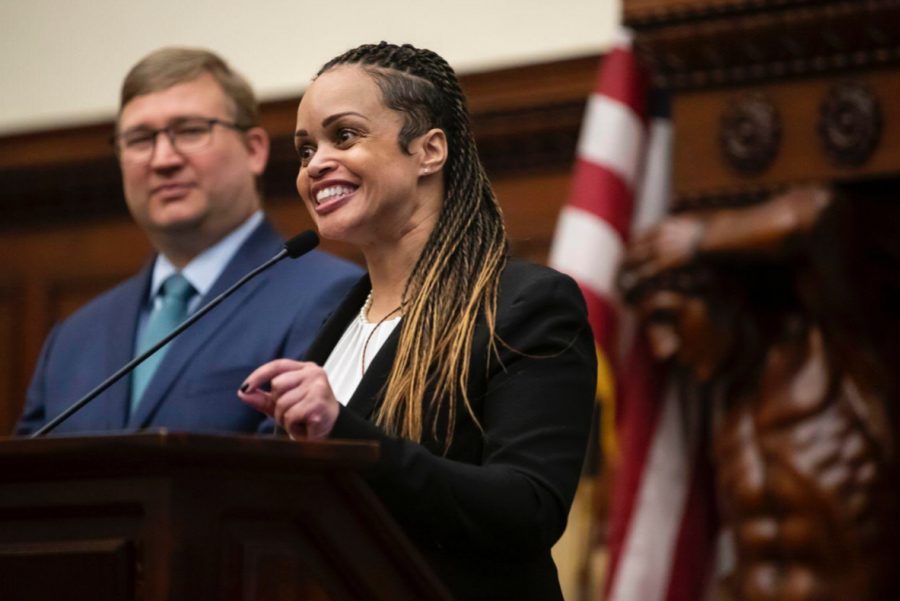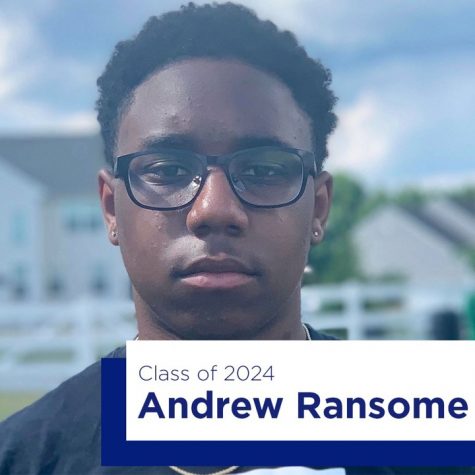New Top Cop in Town
January 9, 2020
Philadelphia Mayor Jim Kenney has appointed former Portland police chief Danielle Outlaw as the city’s next police commissioner, ending a four-month search following the August resignation of Richard Ross.
Outlaw, 43, comes to Philadelphia with more than 20 years of experience on the West Coast, where she rose from a patrol officer in Oakland, California, to the city’s deputy chief of police. She took over as Portland’s police chief in October 2017, becoming the first African American woman to hold the office. She will also be the first African American woman to be Philadelphia police commissioner when she takes over on Feb. 10, 2020. “I am appointing Danielle Outlaw because I am convinced she has the conviction, courage, and compassion needed to bring long-overdue reform to the department,” Kenney said in a statement. “After meeting and speaking with her at length, I came away confident that Danielle Outlaw possesses the strength, integrity and empathy vital to the tasks ahead.”
Philadelphia’s search for a new commissioner began when Ross, who had held the position since Jan. 2016, resigned amid allegations of sexual misconduct. Ross and 10 others in the department were sued by two female officers, including one woman with whom Ross allegedly had a past love affair. He was accused of failing to respond forcefully to later claims of harassment against other men on the force reported by both women. Deputy Commissioner Christine Coulter stepped in for Ross on an interim basis during the city’s search.
Outlaw’s record in Portland includes focusing crime strategies on individual precincts to reduce crime and broadly reforming the city’s use of force policies, particularly for those suffering from mental illness. “I am honored by the faith that Mayor Kenney is placing in me to lead the Philadelphia Police Department,” Outlaw said. “While I am new to Philadelphia, I am not new to the challenges of big-city, 21st century policing.” Philadelphia has seen an uptick in fatal shootings over the past few years, highlighted by a disturbing trend of violent incidents involving juveniles in recent months. The city has also worked to address issues of racism within the department and has hired an independent firm to investigate the allegations of harassment and discrimination that surfaced with Ross’ departure.
Outlaw has not been without scrutiny in Portland, where she reportedly faced community criticism for her department’s handling of protests and the implementation of the excessive force policies designed to protect those with mental illness, a problem she discussed during an interview with The Oregonian. She was widely viewed as positioning herself for a move to larger metropolitan police force and is actively involved with national and international policing organizations. “Modern policing is data-driven, but the paramount factor is not so easily quantified: trust — the trust residents have that their police force will keep them safe and treat them with respect,” Outlaw said. “I am convinced that trust can be restored, here and across the nation. I am convinced community-police relations can be rebuilt and fortified through dialogue, transparency, and accountability.” Kenney thanked Coulter for her months of service as interim police commissioner and looked ahead to Outlaw’s role as Philadelphia enters a new decade. “Whether you are a longtime resident worried about crime on your block, an African American man who fears being unlawfully stopped for a broken taillight, or a patrol officer who feels unappreciated by those you serve, I ask for your help,” Kenney said. “Put aside your preconceptions and your anger — and support our new Commissioner as she leads the Department through the tremendous challenges ahead.”









